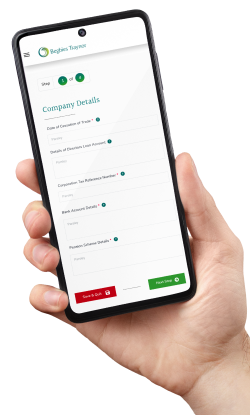If your limited company has debts you cannot pay, you may be considering using Company Strike Off, also known as Dissolution, as a way to close it down.
You should be warned that striking off a limited company using form DS01 is not a suitable way to close a company with outstanding debts, and if you do take this approach, you should prepare for your strike off application to be objected to.
Concerned about the National Insurance increase?
For the 2024-25 tax year, the rate of employer National Insurance increases from 13.8% to 15% adding yet more pressure onto already squeezed cash flows. If you are worried about the impact this could have on your company’s finances, talk to the experts at UK Liquidators. As licensed insolvency practitioners we can explain your options and help you plot a way forward. Call today on 0800 063 9262.
The process of striking a business off the Companies House register is one you initiate as a company director. You can follow the process online or submit form DS01 to Companies House.
Your application to strike off your limited company will then be advertised in the Gazette to give interested parties, including any creditors you may have, time to object. If you receive no objections and the company meets the eligibility requirements for strike off, another notice will be placed in the Gazette and the company will be struck off the register.
As well as being cost-effective, one of the main benefits of strike off is that you retain full control of the business throughout. However, one of the key requirements for strike off is that the company must be solvent. If it has debts you cannot pay (it’s insolvent), you must use a different process, such as a Creditors’ Voluntary Liquidation (CVL).
Liquidation Portal
For Company Directors

If you try to strike off a company with debts, your strike-off application won’t be dismissed out of hand. That is, you can start the process and the Gazette will publish the strike off notification, but this is where the problems are likely to start.
As part of the strike off process, you have a legal duty to inform any interested parties, including your creditors, employees and shareholders, of your intention to strike off. You are required to send them a copy of the DS01 form within 7 days of you submitting it to Companies House.
A notice will also be placed in the Gazette, making your strike off application public knowledge. Creditors such as the banks and HMRC pay close attention to these notices and are likely to lodge an objection that will halt your attempts to dissolve the company should your company owe them money.
With the strike off application suspended, creditors can then take action against your company to force the repayment of the debt. In some cases this could lead to your company facing Compulsory Liquidation by order of the court.
Even if you’re successful in striking off the business, your creditors can apply to the court to restore the company to the register once they become aware it has been struck off in order for them to take action to recover the debt.
In the case of HMRC, any interest and penalties can also be backdated to the date of striking off. You will also be open to accusations of misconduct because, as a company director, you must be aware of the company’s financial position at all times and take action to protect creditor interests once you become aware the company is insolvent.
If your company has debts it cannot pay, a Creditors’ Voluntary Liquidation (CVL) is usually the best approach. A CVL is a formal insolvency process which is administered by an insolvency practitioner who will wind up the company's affairs on your behalf.
Once the insolvency practitioner has been appointed, they will assume control of the company and will work towards identifying and disposing of its assets for the benefit of creditors. The proceeds will then be distributed among your creditors according to a set hierarchy, before the company's name is removed from the official register held at Companies House. Any debts that cannot be repaid from the sale of company assets will be written off.
Another benefit of the CVL process is that it allows you to demonstrate your desire to adhere to your legal responsibilities as the director of an insolvent company. By being proactive and taking the steps to liquidate your company voluntarily, you are showing that you are taking your responsibilities as a director seriously and protecting the interests of your creditors.
Start your online liquidation today
If you have decided liquidation is the right option for your limited company, you can take the first step and begin the process online using our online portal. Starting the process is quick, simple, and can be done at a time that suits you. Your information will be submitted to your local UK Liquidators insolvency practitioner who will be with you every step of the way. Click here to start your company’s liquidation online.
If your company has debts that it cannot repay, we can help you find the most appropriate way to close it down. We will explain how strike off and formal liquidation work and advise you on the right approach for your situation. Please contact our team for a free, same-day consultation or arrange a meeting at our network of offices throughout the UK.
By completing the test, you will receive:
If you are considering liquidation for your company, taking expert advice at an early stage is crucial. At UK Liquidators, our team of licensed insolvency practitioners are committed to providing limited company directors with the help and advice they need to make an informed decision.




Looking for immediate support?
Complete the below to get in touch